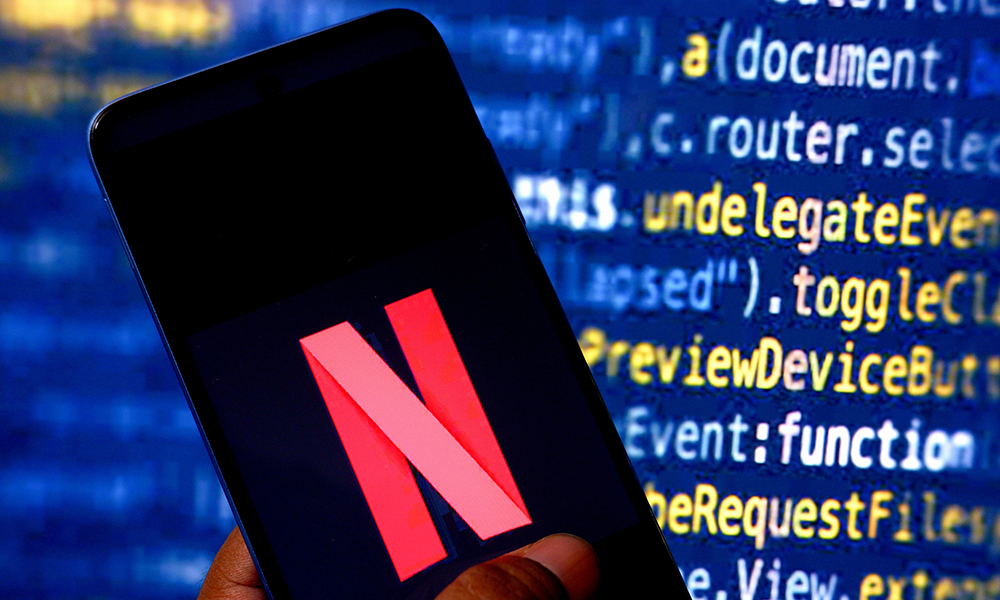
奈飞公司在普及流媒体方面取得的成功颠覆了传统电影业一个多世纪以来的主导地位。
但在经历了史上最艰难的一年之后,该公司的领导风格正在发生戏剧性的转变。正如该公司的一位前员工最近在Insider网站上指出的那样,高管们采取了削减成本和裁员的方式,决策过程变得“完全是保守的”和“完全是基于恐惧的”。
奈飞公司发生的变化始于今年4月,当时该公司公布十多年来首次出现季度用户流失。公司股票立即暴跌,此后一直在努力恢复。
奈飞公司还不得不应对日益激烈的竞争,竞争对手包括流媒体提供商迪士尼+(Disney+)、亚马逊Prime和HBO Max。订阅服务研究公司Antenna的最新数据显示,截至4月底,23%的美国奈飞新注册用户在一个月内取消了订阅,这一比例明显高于其他流媒体平台。
上个月,奈飞公司的收益好于预期,尽管订户流失了近100万,但其股价小幅上涨。但管理风格的变化可能会一直持续下去,甚至可能在公司长达十年的崛起之后不可避免。
媒体分析公司Disruptive Tech Research的创始人兼首席分析师卢·巴塞内斯(Lou Basenese)在接受《财富》杂志采访时表示:“奈飞公司的业务重心——广告支持的分级、基于恐惧的管理、裁员——确实是技术趋势增长见顶带来的痛苦的下行压力。”
奈飞公司勒紧裤腰带
自股价暴跌以来,奈飞公司一直在努力增加收入。该公司警告说,将严厉打击密码共享,如果订户让家庭成员以外的人使用他们的账户,就需要支付更多的费用。该公司还计划启动新的基于广告的订阅分级。
从去年开始,奈飞公司就承诺要进军电子游戏领域。在过去的一年里,这家流媒体公司发布了多款新游戏,并收购了多家视频游戏开发商。
与此同时,奈飞公司也在努力削减成本,包括今年进行了两轮小规模裁员。该公司5月份裁员150人,6月份又裁员300人。
奈飞公司没有立即回应《财富》杂志的置评请求。
命运逆转
此前奈飞公司在疫情早期迅速崛起,这对公司来说是一个了不起的转变。该公司在2020年增加了创纪录的1580万新订户,是当年预期的两倍,因为各地实行“居家令”让许多人除了看电视无事可做。
该公司在疫情早期取得的成功导致职位空缺激增,尤其是在内容创作和客户服务方面。
但公司内部的气氛可能并不那么乐观。前员工告诉Insider网站,公司的快速增长导致很多员工捉襟见肘,包括较低级别的员工和高管。
奈飞公司宣布将继续扩展流媒体库,尽管经过多年的逐年增长,到2022年,该公司在新内容上的支出将维持在每年170亿美元的水平。该公司最近还宣布,它将不再注重制作大量节目,而是更多地关注观众想要观看什么类型的节目。
不过,一些前员工表示,尽管重新调整了工作重点,但公司高层在预算方面更加保守,承担的风险也更少。
“不要挑战,完成本职工作就好。他们不想听到挑战。”一位前高管告诉Insider网站。“工作变得不那么令人愉快了。工作变得非常注重安全。”
虽然维持内容支出可能是确保奈飞公司在竞争日益激烈的行业中维持商业价值的关键,但巴塞内斯表示,该公司将不得不在内容支出和日益不利的市场环境之间找到平衡。
他说:“恐惧注定会占主导地位,直到公司在内容成本、员工人数和从低到零的订户增长之间找到新的平衡。”(财富中文网)
译者:中慧言-王芳
奈飞公司在普及流媒体方面取得的成功颠覆了传统电影业一个多世纪以来的主导地位。
但在经历了史上最艰难的一年之后,该公司的领导风格正在发生戏剧性的转变。正如该公司的一位前员工最近在Insider网站上指出的那样,高管们采取了削减成本和裁员的方式,决策过程变得“完全是保守的”和“完全是基于恐惧的”。
奈飞公司发生的变化始于今年4月,当时该公司公布十多年来首次出现季度用户流失。公司股票立即暴跌,此后一直在努力恢复。
奈飞公司还不得不应对日益激烈的竞争,竞争对手包括流媒体提供商迪士尼+(Disney+)、亚马逊Prime和HBO Max。订阅服务研究公司Antenna的最新数据显示,截至4月底,23%的美国奈飞新注册用户在一个月内取消了订阅,这一比例明显高于其他流媒体平台。
上个月,奈飞公司的收益好于预期,尽管订户流失了近100万,但其股价小幅上涨。但管理风格的变化可能会一直持续下去,甚至可能在公司长达十年的崛起之后不可避免。
媒体分析公司Disruptive Tech Research的创始人兼首席分析师卢·巴塞内斯(Lou Basenese)在接受《财富》杂志采访时表示:“奈飞公司的业务重心——广告支持的分级、基于恐惧的管理、裁员——确实是技术趋势增长见顶带来的痛苦的下行压力。”
奈飞公司勒紧裤腰带
自股价暴跌以来,奈飞公司一直在努力增加收入。该公司警告说,将严厉打击密码共享,如果订户让家庭成员以外的人使用他们的账户,就需要支付更多的费用。该公司还计划启动新的基于广告的订阅分级。
从去年开始,奈飞公司就承诺要进军电子游戏领域。在过去的一年里,这家流媒体公司发布了多款新游戏,并收购了多家视频游戏开发商。
与此同时,奈飞公司也在努力削减成本,包括今年进行了两轮小规模裁员。该公司5月份裁员150人,6月份又裁员300人。
奈飞公司没有立即回应《财富》杂志的置评请求。
命运逆转
此前奈飞公司在疫情早期迅速崛起,这对公司来说是一个了不起的转变。该公司在2020年增加了创纪录的1580万新订户,是当年预期的两倍,因为各地实行“居家令”让许多人除了看电视无事可做。
该公司在疫情早期取得的成功导致职位空缺激增,尤其是在内容创作和客户服务方面。
但公司内部的气氛可能并不那么乐观。前员工告诉Insider网站,公司的快速增长导致很多员工捉襟见肘,包括较低级别的员工和高管。
奈飞公司宣布将继续扩展流媒体库,尽管经过多年的逐年增长,到2022年,该公司在新内容上的支出将维持在每年170亿美元的水平。该公司最近还宣布,它将不再注重制作大量节目,而是更多地关注观众想要观看什么类型的节目。
不过,一些前员工表示,尽管重新调整了工作重点,但公司高层在预算方面更加保守,承担的风险也更少。
“不要挑战,完成本职工作就好。他们不想听到挑战。”一位前高管告诉Insider网站。“工作变得不那么令人愉快了。工作变得非常注重安全。”
虽然维持内容支出可能是确保奈飞公司在竞争日益激烈的行业中维持商业价值的关键,但巴塞内斯表示,该公司将不得不在内容支出和日益不利的市场环境之间找到平衡。
他说:“恐惧注定会占主导地位,直到公司在内容成本、员工人数和从低到零的订户增长之间找到新的平衡。”(财富中文网)
译者:中慧言-王芳
Netflix’s success in popularizing streaming disrupted the traditional movie industry, upending its more than a century of dominance.
But after the toughest year in Netflix’s history, the company’s leadership style is undergoing a dramatic transformation. Top executives have resorted to cutting costs and laying off staff, with decision-making processes becoming “all reactionary” and “all fear-based,” as one former Netflix employee recently noted to Insider.
The changes at Netflix started in April, when the company posted its first quarterly subscriber loss in more than a decade. Its stock immediately took a nosedive and has struggled to recover ever since.
Netflix has also had to deal with growing competition from rival streaming providers including Disney+, Amazon Prime, and HBO Max. Recent data from subscription service research firm Antenna shows that 23% of new U.S. Netflix sign-ups at the end of April had canceled their subscriptions within a month, a significantly higher rate than at other streamers.
After better than expected earnings last month, Netflix’s shares modestly rallied, despite a subscriber loss of nearly 1 million. But the changing management style could be here to stay, and may have even been inevitable after the company’s decade-long rise.
“Netflix’s business pivots—ad-supported tiers, fear-based management, layoffs—are indeed the painful downside to growth peaking for a technology trend,” Lou Basenese, founder and chief analyst at media analytics firm Disruptive Tech Research, told Fortune.
Netflix’s belt tightening
Since its shares plummeted, Netflix has scrambled to increase revenue. It warned that it would crack down on password sharing, requiring subscribers to pay more if they let people outside their households use their accounts. The company also plans to start a new ad-based subscription tier.
Since last year, Netflix has promised to expand into video games. Over the past year, the streamer has released a number of new games and acquired multiple video game developers.
At the same time, Netflix has tried to cut costs, including two small rounds of layoffs this year. It laid off 150 employees in May, followed by 300 more in June.
Netflix did not immediately respond to Fortune’s request for comment.
Reversed fortunes
It’s a remarkable turnaround for Netflix after its meteoric ascent, which was supercharged early in the pandemic. The company added a record 15.8 million new subscribers in 2020, double its forecasts for the year, as the widespread stay-at-home orders left many people with little to do but watch TV.
The company’s success early in the pandemic led to a boom in job openings, especially in content creation and customer service.
But the atmosphere within the company may not have been as rosy. Former employees told Insider that the rapid growth led to many workers being stretched thin, including both lower-level employees and executives.
Netflix has announced that it will continue to expand its streaming library, although spending on new content will be flat at $17 billion a year in 2022, after years of annual increases. The company has also recently announced that it will focus less on churning out a high quantity of shows, and more on what audiences want more of.
But despite the refocusing, some former employees have said that higher-ups are more conservative with their budgets, and are taking fewer risks.
“Don’t challenge, just do the thing. They don’t want to hear it,” one former executive told Insider. “It became less enjoyable. The work became really safe.”
And while maintaining spending on content may be key to ensuring Netflix stays relevant in an increasingly competitive industry, Basenese says that the company will have to find a balance between content spending and an increasingly unfavorable market environment.
“Fear promises to rule the day until a new equilibrium can be found between content costs, headcount, and low to no subscriber growth,” he said.






